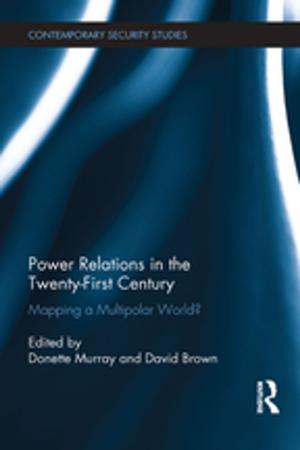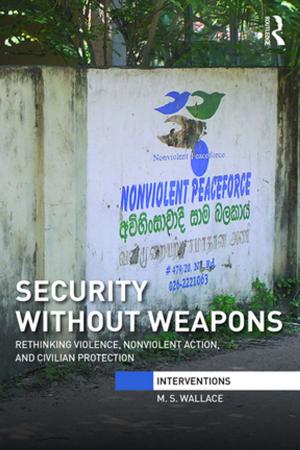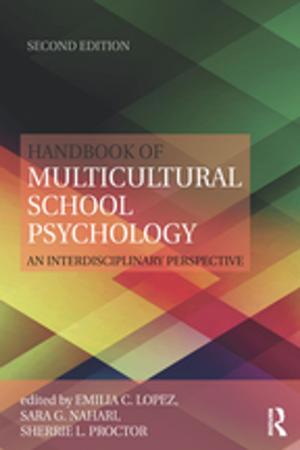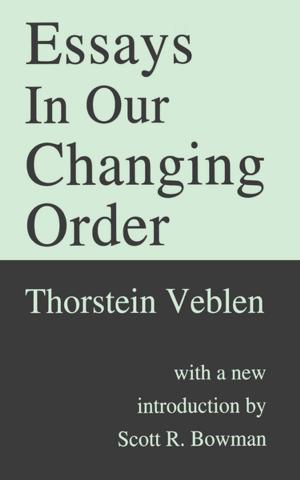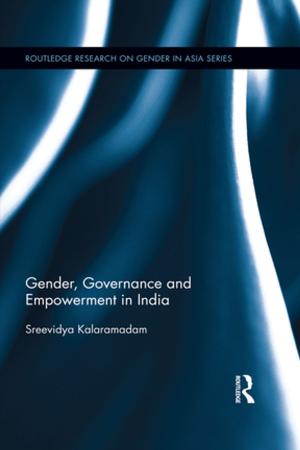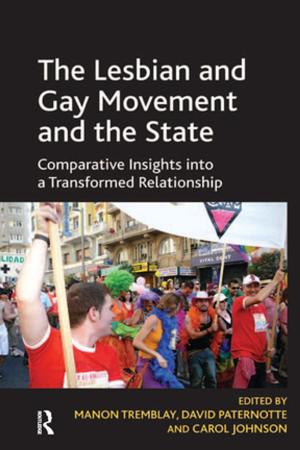Writing Groups Inside and Outside the Classroom
Nonfiction, Reference & Language, Education & Teaching, Educational Theory, Curricula, Language Arts, Communication, Writing & Publishing, Composition & Creative Writing| Author: | ISBN: | 9781135620073 | |
| Publisher: | Taylor and Francis | Publication: | April 4, 2014 |
| Imprint: | Routledge | Language: | English |
| Author: | |
| ISBN: | 9781135620073 |
| Publisher: | Taylor and Francis |
| Publication: | April 4, 2014 |
| Imprint: | Routledge |
| Language: | English |
This unique collection considers the nature of writing groups inside and outside the academic environment. Exploring writing groups as contextual literacy events, editors Beverly J. Moss, Nels P. Highberg, and Melissa Nicolas bring together contributors to document and reflect on the various types of collaborations that occur in writing groups in a wide range of settings, both within and outside the academy.
The chapters in this volume respond to a variety of questions about writing groups, including:
*What is the impact of gender, race, and socioeconomic class on power dynamics in writing groups?
*When is a writing group a community and are all writing groups communities?
*How does the local community of a writing group impact the participation of group members in other local or global communities?
*How does the local community of a writing group impact the participation of group members in other local or global communities?
*What actions contribute to a strong community of writers and what actions contribute to the breakdown of community?
*When and for whom are writing groups ineffective?
*What is it about belonging to a community of writers that makes writing groups appealing to so many within and beyond the academy?
Each chapter highlights how writing groups, whether or not they are labeled as such, function in various spaces and locations, and how collaboration works when writers from a variety of backgrounds with diverse interests come together.
Writing Groups Inside and Outside the Classroom illustrates that writing groups outside of the academy are worthy of study and serve as important sites of writing and literacy instruction. Offering significant insights into the roles of writing groups in literacy and writing practice, this volume is appropriate for scholars and teachers of writing, rhetoric, composition, and literacy; for writing center administrators and staff; and for writing group participants.
This unique collection considers the nature of writing groups inside and outside the academic environment. Exploring writing groups as contextual literacy events, editors Beverly J. Moss, Nels P. Highberg, and Melissa Nicolas bring together contributors to document and reflect on the various types of collaborations that occur in writing groups in a wide range of settings, both within and outside the academy.
The chapters in this volume respond to a variety of questions about writing groups, including:
*What is the impact of gender, race, and socioeconomic class on power dynamics in writing groups?
*When is a writing group a community and are all writing groups communities?
*How does the local community of a writing group impact the participation of group members in other local or global communities?
*How does the local community of a writing group impact the participation of group members in other local or global communities?
*What actions contribute to a strong community of writers and what actions contribute to the breakdown of community?
*When and for whom are writing groups ineffective?
*What is it about belonging to a community of writers that makes writing groups appealing to so many within and beyond the academy?
Each chapter highlights how writing groups, whether or not they are labeled as such, function in various spaces and locations, and how collaboration works when writers from a variety of backgrounds with diverse interests come together.
Writing Groups Inside and Outside the Classroom illustrates that writing groups outside of the academy are worthy of study and serve as important sites of writing and literacy instruction. Offering significant insights into the roles of writing groups in literacy and writing practice, this volume is appropriate for scholars and teachers of writing, rhetoric, composition, and literacy; for writing center administrators and staff; and for writing group participants.



